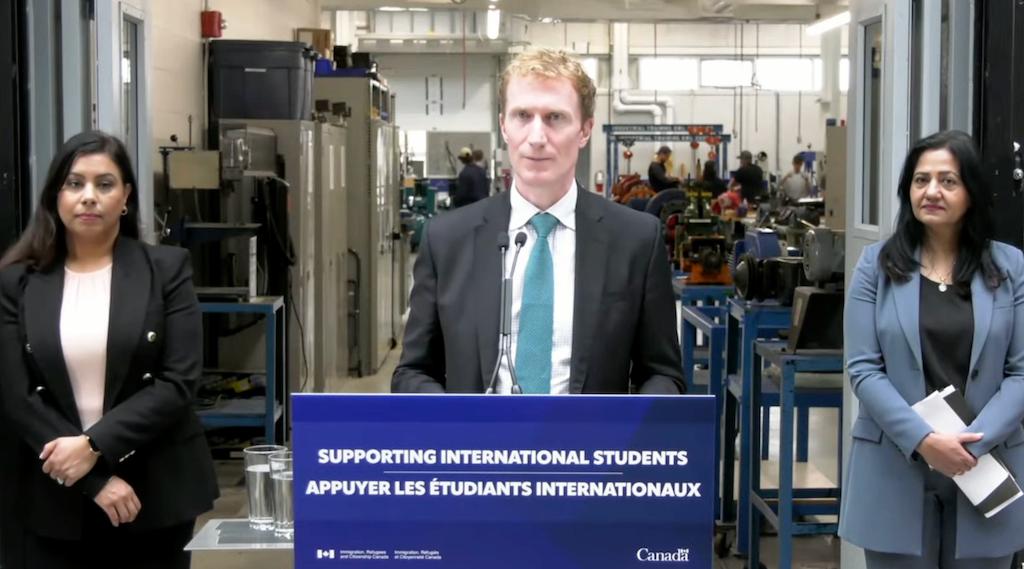Securing a Canadian student visa can be a complex and competitive process, particularly for international students eager to pursue their studies in Canada. In 2024, Canada has introduced a Zero Net Growth model for study permits, which means that for every student who leaves the country, one new student can enter. This model impacts how study permits are allocated and can influence your chances of obtaining a student visa.

Understanding the Current Visa System
In January 2024, Canada set a cap on the number of visas it will issue to international students. This policy revision also involved adjusting the final allocation of attestation letters, which are mandatory documents necessary for obtaining a study permit in Canada. These letters are issued by provinces and territories and play a crucial role for students seeking entry into the country.
While the overall cap on visas may seem limiting, provinces and territories vary in their allocations of attestation letters. By choosing your destination carefully based on these allocations, you can optimize your chances of visa success.
Key Insights from Research
Research offers several valuable insights that can guide students in their visa application process and improve their chances of obtaining a Canadian student visa.
- Choose Your Province Strategically: Different provinces have different allocations of attestation letters, impacting your chances of obtaining a student visa. For instance, Alberta and Quebec have seen increases in their allocations, making them attractive destinations for students seeking higher approval rates.
- Understand the Application Process: Familiarizing yourself with the Canadian visa application process, including requirements and necessary documents, is crucial. Research shows that careful preparation and attention to detail can significantly improve your chances of success.
- Meet Eligibility Criteria: Ensuring you meet all eligibility criteria for a Canadian study permit is essential. This includes acceptance into a designated learning institution and having sufficient financial resources to support your studies and stay in Canada.
- Submit a Strong Application: Research emphasizes the importance of submitting a well-prepared application that includes all required documents and information. Incomplete or inaccurate applications can lead to delays or rejections.
- Seek Professional Guidance: Consulting with visa experts or experienced consultants can provide valuable insights and assistance with your application. Research suggests that professional guidance can help navigate the complexities of the visa process and increase your chances of approval.
- Stay Informed About Policy Changes: Canadian immigration policies can change, affecting the visa application process. Stay up to date with any changes in policies or procedures to ensure your application aligns with current requirements.
- Explore Alternative Destinations: While popular provinces like Ontario and British Columbia may seem appealing, consider other provinces with higher allocations of attestation letters for potentially better chances of approval.
- Follow Instructions Carefully: Adhering to the application instructions and guidelines is crucial for a successful application. Pay close attention to details and submit your application in a timely manner.
Examining Provincial Allocations
Canada’s provinces and territories have been assigned a total of 552,095 attestation letters, with an estimated approval of 291,914 study permits. This number represents a 28% decrease from the previous year. However, there are exemptions for specific student categories, such as primary and secondary school students, as well as those pursuing master’s and doctoral degrees.
Certain provinces have seen notable increases in their attestation letter allocations:
- Alberta: Received 40,894 attestation letters, resulting in an estimated approval of 24,537 study permits (10% increase).
- Quebec: Allocated 117,917 attestation letters, leading to an estimated 43,629 study permits approved (10% increase).
- Saskatchewan: Received an allocation of 15,054 attestation letters, projecting the approval of 7,226 study permits (10% increase).
- Newfoundland and Labrador: Saw an allocation of 3,153 attestation letters, projecting 1,419 study permits approved (10% increase).
- Nunavut and Northwest Territories: Both received significant increases, with projected approvals of 200 study permits in each region.
Exploring New Study Destinations
While Ontario remains a top choice due to its large allocation of 235,000 attestation letters (projected 141,000 study permits approved), it has seen a 41% decrease compared to the previous year. Similarly, British Columbia experienced an 18% decrease in allocations.
These declines suggest higher rejection rates due to the sheer volume of applications in these provinces. By considering other provinces and territories with higher allocations, such as Alberta, Quebec, and Saskatchewan, students may find better chances of approval.
Need Expert Guidance?
Navigating the Canadian visa process can be complex. That’s why it’s important to seek guidance from experienced visa consultants. If you’re looking for expert advice or want to learn more about your options for studying in Canada, visit our contact page or call our office.
For those in Jalandhar, we invite you to meet our visa consultants in person. Our team has a 100% success rate in helping students obtain their Canadian visas. Trust our experts to guide you through every step of the application process.
Stay updated with the latest visa information and advice by following us on Facebook! Let us help you make your Canadian study dreams a reality.



